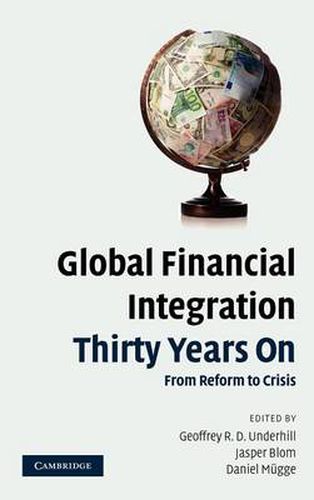Readings Newsletter
Become a Readings Member to make your shopping experience even easier.
Sign in or sign up for free!
You’re not far away from qualifying for FREE standard shipping within Australia
You’ve qualified for FREE standard shipping within Australia
The cart is loading…






Early in the new millennium it appeared that a long period of financial crisis had come to an end, but the world now faces renewed and greater turmoil. This 2010 volume analyses the past three decades of global financial integration and governance and the recent collapse into crisis, offering a coherent and policy-relevant overview. State-of-the-art research from an interdisciplinary group of scholars illuminates the economic, political and social issues at the heart of devising an effective and legitimate financial system for the future. The chapters offer debate around a series of core themes which probe the ties between public and private actors and their consequences for outcomes for both developed markets and developing countries alike. The contributors argue that developing effective, legitimate financial governance requires enhancing public versus private authority through broader stakeholder representation, ensuring more acceptable policy outcomes.
$9.00 standard shipping within Australia
FREE standard shipping within Australia for orders over $100.00
Express & International shipping calculated at checkout
Early in the new millennium it appeared that a long period of financial crisis had come to an end, but the world now faces renewed and greater turmoil. This 2010 volume analyses the past three decades of global financial integration and governance and the recent collapse into crisis, offering a coherent and policy-relevant overview. State-of-the-art research from an interdisciplinary group of scholars illuminates the economic, political and social issues at the heart of devising an effective and legitimate financial system for the future. The chapters offer debate around a series of core themes which probe the ties between public and private actors and their consequences for outcomes for both developed markets and developing countries alike. The contributors argue that developing effective, legitimate financial governance requires enhancing public versus private authority through broader stakeholder representation, ensuring more acceptable policy outcomes.